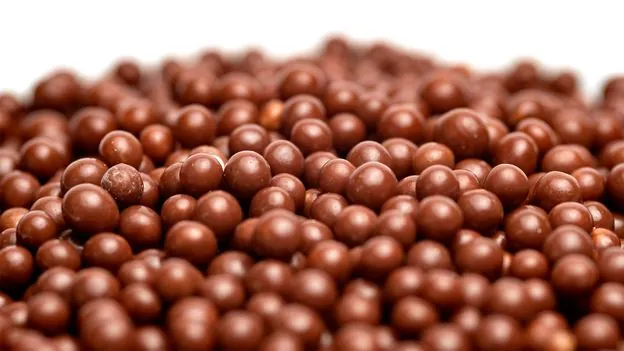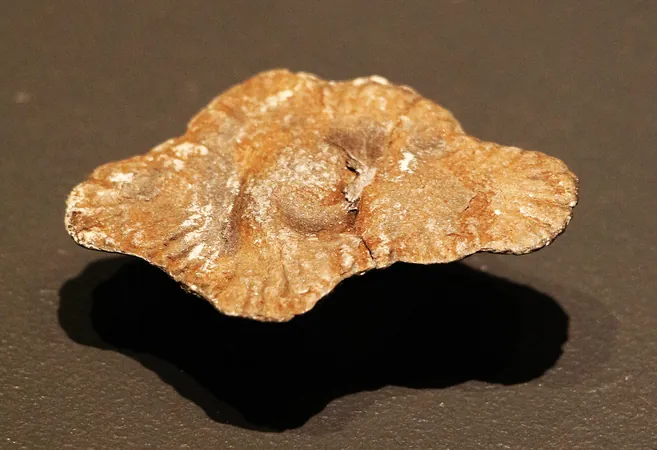
The Surprising Truth About Chocolate and Acne – What You Need to Know!
2024-09-20
For decades, chocolate has been unfairly blamed for causing acne, with parents using it as a reason to keep their kids from indulging in sweets. However, recent research suggests that this long-held belief may not hold water.
Historically, the connection between chocolate and acne was explored back in the 1960s, where a prominent study with just 65 participants concluded no significant link. Yet, this study was criticized for its flawed design. Fast forward to today, and the narrative has shifted; researchers hint that the real culprits behind acne might be dietary habits across the Western world, particularly those high in saturated fats, sugar, and dairy.
Acne, a widespread skin condition, arises when hair follicles become clogged with oil and dead skin cells, often leading to breakouts. Dr. Beibei Du-Harpur, a dermatologist at Kings College London, notes that genetics plays a significant role in determining the size of sebaceous glands, which are responsible for oil production. In recent years, the rise in adult acne, especially among women, indicates that lifestyle changes are influencing skin health, with environmental factors also contributing to this trend.
"Modern lifestyles are not conducive to optimal health, and maybe acne is a reflection of that," Dr. Du-Harpur explains. Researchers emphasize the need for more studies that examine the complex interactions of diet, inflammation, immune function, and stress on our skin.
Patients often seek advice from dermatologists about dietary changes they can make to combat acne, with chocolate frequently topping the list. "While there may be some truth in the correlation, it’s largely a misunderstanding," says Dr. Zainab Laftah, a consultant dermatologist in London.
Some dietary factors may indeed play a part in acne's development. For instance, high glycaemic index (GI) foods, which spike blood sugar levels, are often implicated in acne flare-ups. This includes sugary snacks and refined carbohydrates. Chocolate, interestingly, falls into the low- to medium-GI category, questioning its direct link to acne.
Several studies link high GI diets to skin blemishes, yet one striking finding comes from the Kitavan islanders of Papua New Guinea, who are virtually acne-free due to their low-GI diets. The contrast among populations offers insight into how dietary habits may impact skin health.
In-depth research suggests that acne shares metabolic pathways with other conditions like obesity and diabetes. Dr. Bodo Melnik from the University of Osnabrück asserts that refined carbohydrates and saturated fats may exacerbate acne by triggering an inflammatory response within the skin's sebaceous follicles.
So where does chocolate fit in the grand scheme of dietary influences on acne? While chocolate does contain saturated fat and sugar, its health impact hinges on the type – dark chocolate with a high cocoa percentage is lower in sugar and could potentially carry benefits. Studies show that dark chocolate can reduce oxidative stress on the skin, which may help combat signs of aging, if not directly curbing acne.
Dr. Laftah points out that flavanols present in dark chocolate serve as powerful antioxidants, essential for reducing skin damage from free radicals. It's crucial to note that poor dietary patterns high in calories and low in nutrients will lead to systemic inflammation, manifesting as acne primarily in genetically predisposed individuals.
In conclusion, while chocolate alone isn't a guilty party in the acne saga, the relationship between diet and skin health is intricate. Prioritizing a diet rich in fruits, vegetables, and other nutrient-dense foods is beneficial not only for overall well-being but also for maintaining healthy skin.
Stay tuned for more enlightening stories about health, nutrition, and lifestyle choices that impact your daily life!





 Brasil (PT)
Brasil (PT)
 Canada (EN)
Canada (EN)
 Chile (ES)
Chile (ES)
 España (ES)
España (ES)
 France (FR)
France (FR)
 Hong Kong (EN)
Hong Kong (EN)
 Italia (IT)
Italia (IT)
 日本 (JA)
日本 (JA)
 Magyarország (HU)
Magyarország (HU)
 Norge (NO)
Norge (NO)
 Polska (PL)
Polska (PL)
 Schweiz (DE)
Schweiz (DE)
 Singapore (EN)
Singapore (EN)
 Sverige (SV)
Sverige (SV)
 Suomi (FI)
Suomi (FI)
 Türkiye (TR)
Türkiye (TR)